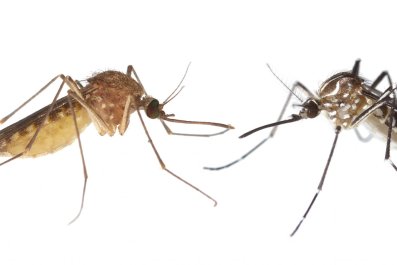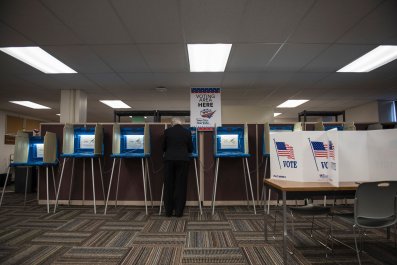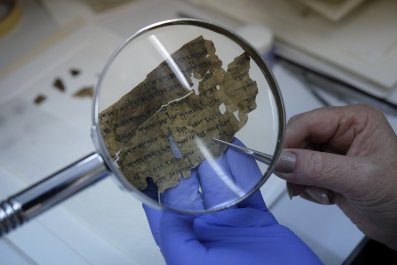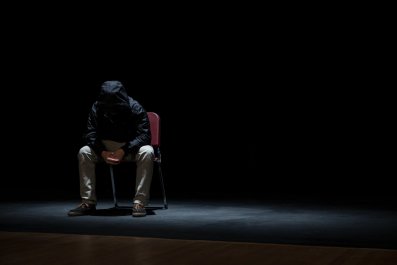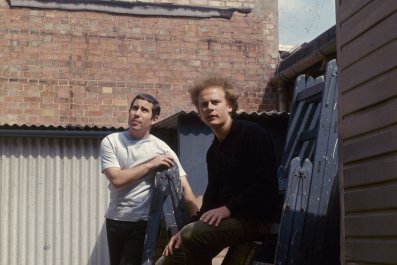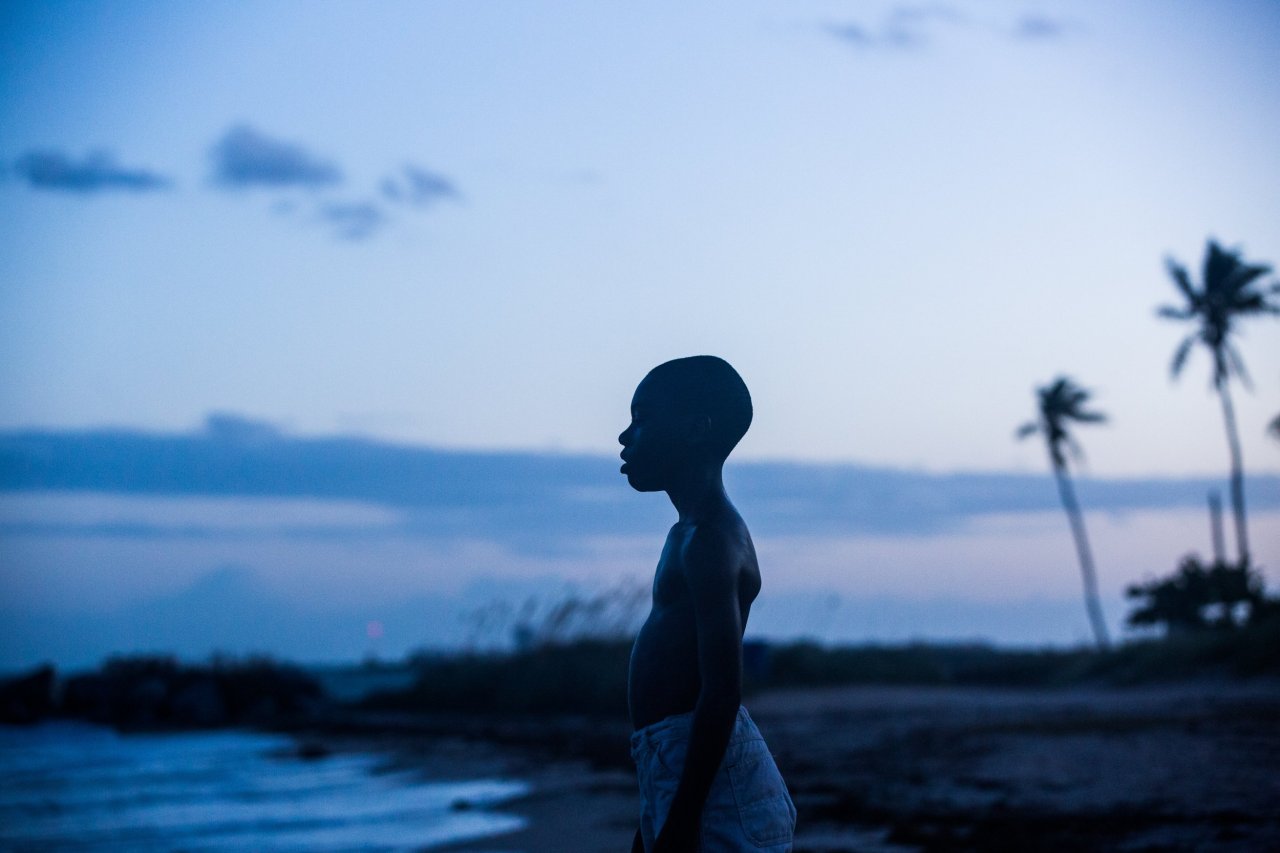
An adaptation of Tarell Alvin McCraney's play In Moonlight Black Boys Look Blue, director Barry Jenkins's new movie, Moonlight, follows the first three decades of a poor, black, gay boy growing up in downtown Miami at the height of the 1980s crack epidemic. Put like that, you might expect something gritty, hard-hitting and faux-documentary in approach—a sun-soaked version of The Wire . In our current cinematic culture of Spandex-clad superheroes, the subject matter feels as fascinatingly far-flung as a news report from Mars. Yet without relinquishing his unfakeable feel for the streets, Jenkins has produced an intensely personal, poetic and gentle film about desire, identity and the fluid, fitful process by which we slip and stumble into ourselves. We don't just grow up, the film suggests, but go up and down and backward, all at the same time.
The film consists of three chapters, checking in with its protagonist, Chiron—pronounced with all the vowels long, so it rhymes with shy —at age 10, 13 and around 30. At 10, Chiron—played by Alex Hibbert—is a scrawny, wide-eyed youngster, dubbed "Little" by schoolyard bullies who sense what he doesn't yet know about himself. His mother (Naomie Harris), working as a nurse, is slowly succumbing to crack addiction, and Chiron, seeking escape, is often to be found in the oceanside home of a midlevel local drug dealer named Juan (Mahershala Ali).
Juan is unlike any other dealer on film. Instead of grooming Chiron to run drugs for him, he gives him swimming lessons and teaches him that his sexuality is nothing to be ashamed of. "We're all love and all pride in this house," his girlfriend, Teresa (Janelle Monáe), tells Chiron.
This shouldn't add up—Juan also sells drugs to Chiron's mother, resulting in some ethical confrontations whose over-neatness smacks of the film's roots in theater—but something in the portraiture rings true to the congested, compromised process of growing up. Mute with distrust, Chiron has wide, fearful eyes that seem to take in the whole world, grabbing comfort where they can. "At some point, you gotta decide for yourself who you gonna be," Juan tells him. The dealer is Abel Magwitch to Chiron's Pip — two outsiders swapping tips on surviving life in the margins. But what if you must hide, as well as find, who you are? Hence the cunning and wisdom of the film's triptych design: Chiron is revealed to himself, as to us, like Russian dolls, each one nestled within the next.
In the film's second section, Chiron has grown into a lanky, wounded teenager (Ashton Sanders), eyes brimming with rage and desperation. His classmates' taunts have turned violent and explicitly homophobic, while his mother has disappeared into her crack pipe. His only escape is the beach, where one night, he and a classmate, Kevin (Jharrel Jerome), have a charged romantic encounter, the interlacing of hands and heads bathed by cinematographer James Laxton with a luminous, moonlit glow. "I cry so much I could turn into drops," admits Chiron. "You just roll into the waves," 15-year-old Kevin tells him as they gaze out at the sea. The whole film feels tidal, attuned to the ebb and flow of identity that must remain fluid in order to survive, with Jenkins alternating sleepy, bleached Florida cloudscapes with lyrical evocations of the sea and the city at night, while Goodie Mob, Erykah Badu and Mozart mix it up on the soundtrack.
This is a quiet, modestly scaled film—a character study made by a filmmaker blessed with unusual amounts of curiosity about his characters that demands an equal commitment of patience from its audience—but the payoff is beautiful. In the third and most powerful segment, Chiron has grown into a heavily muscled drug dealer going under the street name Black (Trevante Rhodes). In the usual course of a movie, if you were introduced to the adult Chiron—diamond earrings, body built up while serving time in prison, gold grillz glittering in his mouth—he would be third thug from the left, dying in a hail of bullets.
But such is the cumulative power of the movie, and the subtlety of Rhodes's performance, that while he is visiting his mother in rehab, you see flashes of the bruised boy he once was. When an equally changed Kevin (now played by André Holland) calls out of the blue, the two meet at an all-night diner and engage in a fraught, tender, complex negotiation in which Chiron attempts to shrug off his pose of toughness and takes, cautiously, a step toward the light.
Moonlight opens October 21 in U.S. cinemas.



